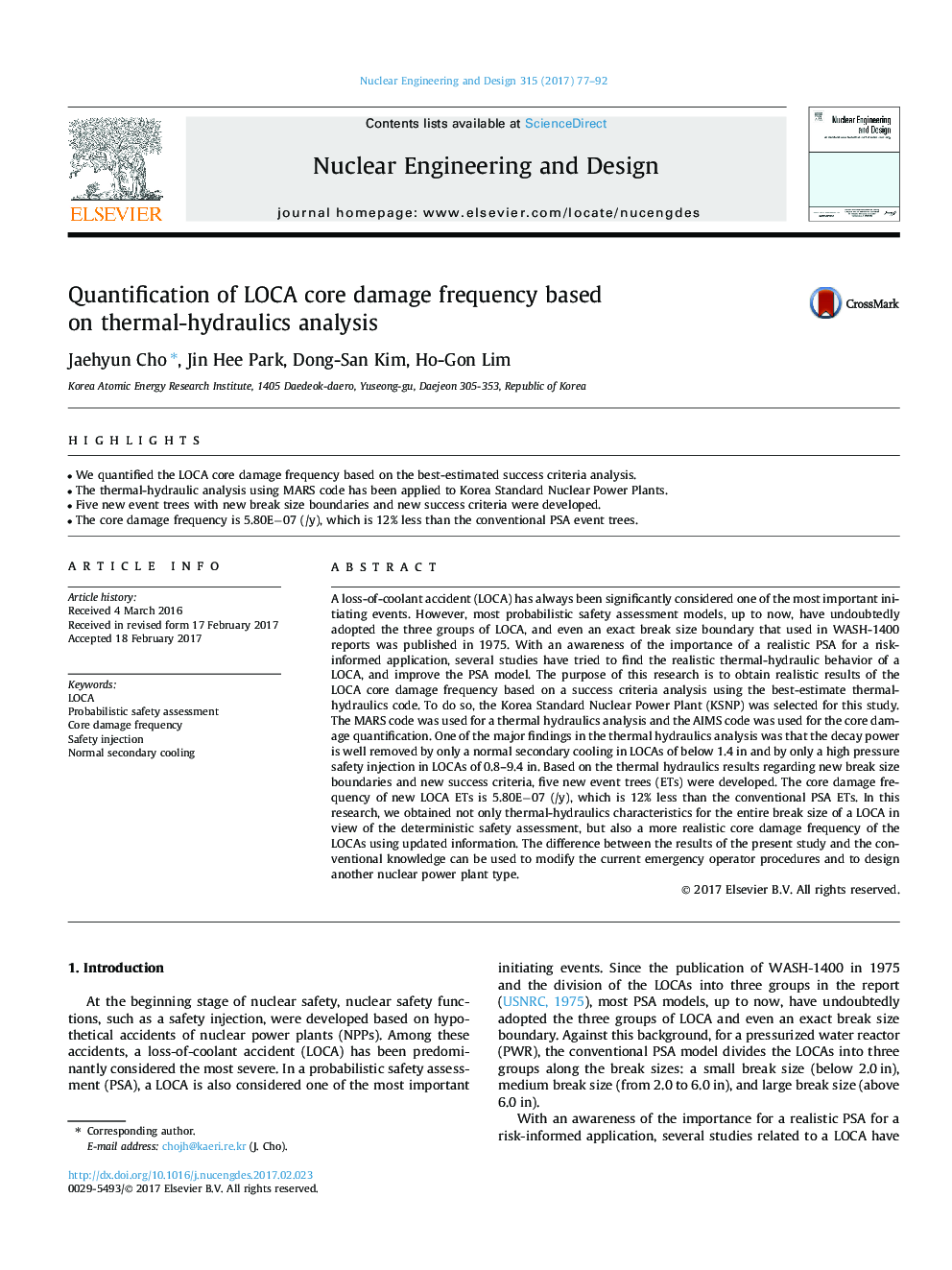| Article ID | Journal | Published Year | Pages | File Type |
|---|---|---|---|---|
| 4925581 | Nuclear Engineering and Design | 2017 | 16 Pages |
Abstract
A loss-of-coolant accident (LOCA) has always been significantly considered one of the most important initiating events. However, most probabilistic safety assessment models, up to now, have undoubtedly adopted the three groups of LOCA, and even an exact break size boundary that used in WASH-1400 reports was published in 1975. With an awareness of the importance of a realistic PSA for a risk-informed application, several studies have tried to find the realistic thermal-hydraulic behavior of a LOCA, and improve the PSA model. The purpose of this research is to obtain realistic results of the LOCA core damage frequency based on a success criteria analysis using the best-estimate thermal-hydraulics code. To do so, the Korea Standard Nuclear Power Plant (KSNP) was selected for this study. The MARS code was used for a thermal hydraulics analysis and the AIMS code was used for the core damage quantification. One of the major findings in the thermal hydraulics analysis was that the decay power is well removed by only a normal secondary cooling in LOCAs of below 1.4Â in and by only a high pressure safety injection in LOCAs of 0.8-9.4Â in. Based on the thermal hydraulics results regarding new break size boundaries and new success criteria, five new event trees (ETs) were developed. The core damage frequency of new LOCA ETs is 5.80Eâ07 (/y), which is 12% less than the conventional PSA ETs. In this research, we obtained not only thermal-hydraulics characteristics for the entire break size of a LOCA in view of the deterministic safety assessment, but also a more realistic core damage frequency of the LOCAs using updated information. The difference between the results of the present study and the conventional knowledge can be used to modify the current emergency operator procedures and to design another nuclear power plant type.
Related Topics
Physical Sciences and Engineering
Energy
Energy Engineering and Power Technology
Authors
Jaehyun Cho, Jin Hee Park, Dong-San Kim, Ho-Gon Lim,
